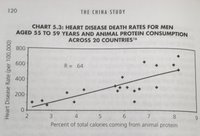- Draft version of what i did at llumc...
- What foods boost immunity?
An adequate diet helps maintain immunity and keeps you healthy. Almost all nutrients in the diet play a crucial role in maintaining an “optimal” immune response. Too much can cause the immune system to not function well.
What May Stimulate Immunity - Probiotics
Active acidophilus cultures, found in many yogurts, promote a strong digestive system. Probiotics are friendly gut bacteria in the gastrointestinal tract. Probiotics play an important role as a part of a healthy diet that acts as a “natural” barrier against infection. Some of the beneficial effect of friendly-boosting bacteria consumption include: (i) improving intestinal tract health; (ii) enhancing the immune system, synthesizing and enhancing the bioavailability of nutrients; (iii) reducing symptoms of lactose intolerance and (iv) reducing the risk of certain cancers. - Fruits and Vegetables: Foods rich in Beta Carotene, Vitamin A
Rev up your immune system by eating all kinds of fruits and vegetables. Such plant foods contain many nutrients that can boost your immunity. A diet high in carotene foods, such as spinach, kale, sweet potatoes, pumpkin and carrots, could provide immune-stimulating doses of beta-carotene. Studies have shown that the more beta-carotene, the greater the increase in protective immune cells. A vegetarian diet rich in vegetables and fruits has shown to help stimulate immunity. - Foods rich in Vitamin C
Vitamin C helps to keep your immune system healthy. It is used by your body during the healing process and may protect against cancer. Studies support the fact that fresh fruit consumption, particularly fruits high in vitamin C, has a beneficial impact on the lung. [1] Examples of fruits high in vitamin C include kiwis, oranges and grapefruits. - Foods rich in Vitamin E
Vitamin E has also been shown to provide additional benefits to help support a strong immune system or patients who suffer from various infections.[2] Nuts, seeds and avocadoes are some examples of foods rich in vitamin E. - Foods rich in Zinc
This mineral helps produce antibodies as well as other white-blood-cell activities that help boost the immune system. Adults deficient in zinc, for example, often have more colds and respiratory tract infections. It is found in any foods high in protein including beans, seafood, peanuts and fortified cereals. - A Low-Fat Diet
Our bodies need essential fatty acids for many important metabolic functions but the wrong kind of fat blunts immunity. Not only is the type of fat consumed important but also the amount taken. Fish oil (containing omega-3 fatty acids) and olive oil (a monounsaturated oil) actually seems to improve immunity. - Garlic
Garlic has also been reported to improve the immune system of patients with AIDS. [3] It has a wide range of antibiotic activity inhibiting a variety of microorganisms- bacteria, molds and yeasts, viruses and parasites. - Foods that May Lower immunity
O High Fat Diet, Especially Polyunsaturated Vegetable Oils, Such as Corn and Safflower Oils
Too much fat, especially the wrong type impairs immunity. Eating too much vegetable polyunsaturated fats (omega-6 fatty acids) predominating in corn, safflower and sunflower seed oils can decrease immune functioning. Additionally, the omega-6 vegetable fats tend to oxidize more quickly, forming oxygen free radicals that attack immune cells. Numerous animal studies find that vegetable type fats hinder immune functions and free-radical-fighting activity.
O Sugar
Sugar prevents the ability of white blood cells to sweep up and kill bacteria.
[1] Nutrition and lung health. Int J Tuberc Lung Dis 2005 Apr; 9 (4): 362-74.
[2] Nutrients and their role in host resistance to infection. J Leukoc Biol, 2002 Jan; 71 (1): 16-32.
[3] TH Abdullah, DV Kirkpatrick, et al. Enhancement of natural killer cell activity in aids with garlic. J Oncology 2 : 52-53, 1989.
TIPS: Immune-Boosting Diet Strategies - *The best diet to build resistance to infections, as well as cancer, is to eat lots of fruits and vegetables, especially garlic and those rich in beta-carotene and vitamin C.
*Go easy on meat, especially fatty meats
*Restrict omega-6 fatty acids of the type in corn oil, safflower oil and sunflower seed oil.
*Eat seafood, especially fatty fish, as well as foods high in zinc.
*Go easy on sugar. There is some evidence it lowers immunity.

